8 Foods Linked to Plastic Contamination You Should Avoid And 9 Cleaner Alternatives to Choose Instead
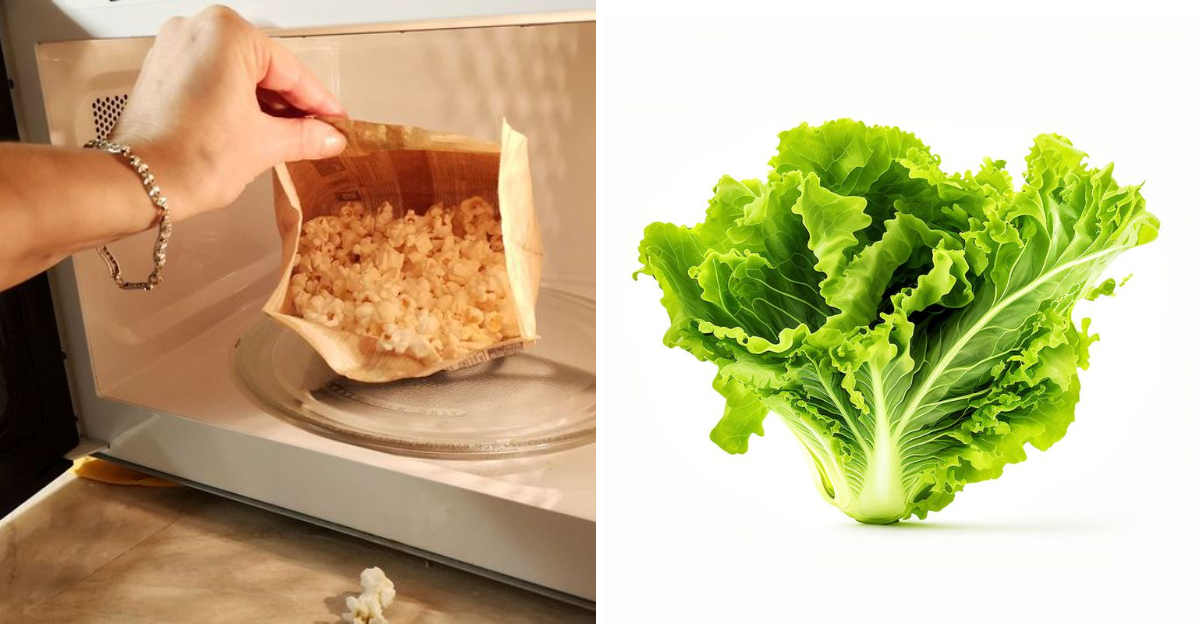
Plastic contamination in food is a growing concern, impacting our health and the environment. Certain foods are more prone to plastic contamination due to packaging and processing methods. This post explores eight foods to avoid and nine cleaner alternatives that are safer and more sustainable.
1. Microwave Popcorn Bags
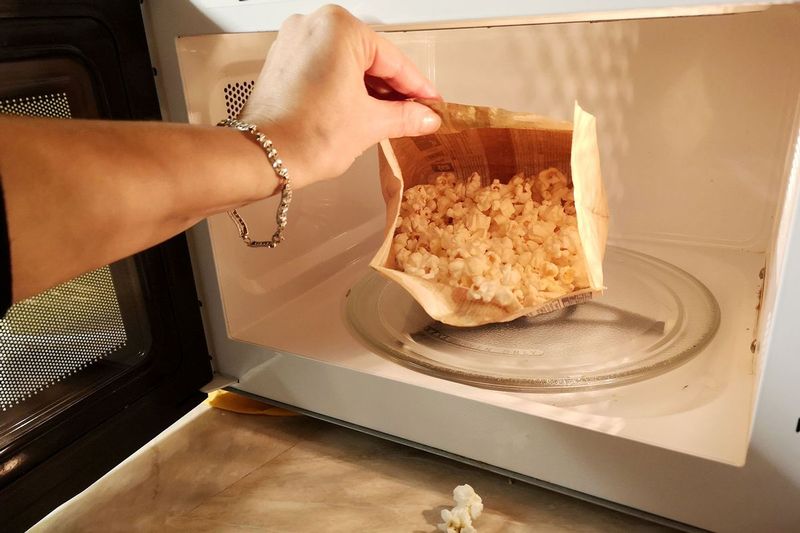
Microwave popcorn bags are convenient but come with hidden risks. The inner linings often contain PFAS, dubbed ‘forever chemicals,’ which can leach into your snack when heated. These chemicals are linked to various health issues. Additionally, the artificial buttery flavorings are not beneficial for your health. Opting for stovetop popcorn allows you to avoid these concerns and enjoy a healthier, tastier snack with full control over ingredients.
2. Bottled Water (Especially in Plastic)
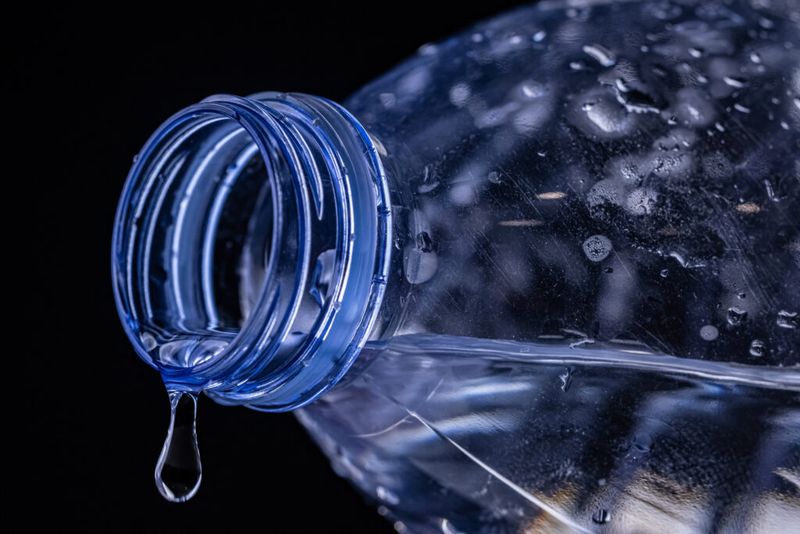
Bottled water is a convenient on-the-go option, but it often contains microplastics. Studies have found detectable levels even in premium brands. Exposure to heat and sunlight during transport can exacerbate this issue by increasing plastic leaching. Switching to filtered water in a glass or stainless steel bottle is a safer, more sustainable choice, free from sneaky plastics and additives.
3. Takeout Containers (Especially Styrofoam or Plastic)
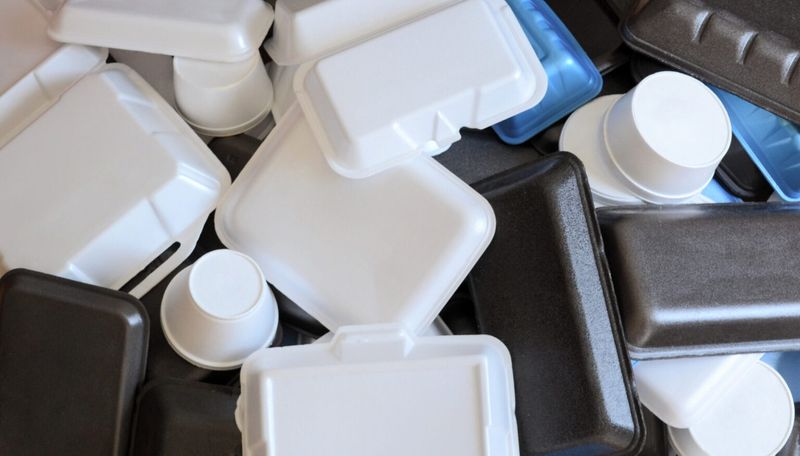
Takeout containers, particularly those made from styrofoam or plastic, pose risks of chemical leaching. Hot, greasy foods can cause plastic chemicals to seep into your meal, especially when reheated. Opt for glass or stainless steel food storage containers for your leftovers. These options allow for safe reheating without the worry of harmful chemical exposure, providing peace of mind along with your meal.
4. Canned Foods (With Plastic Linings)
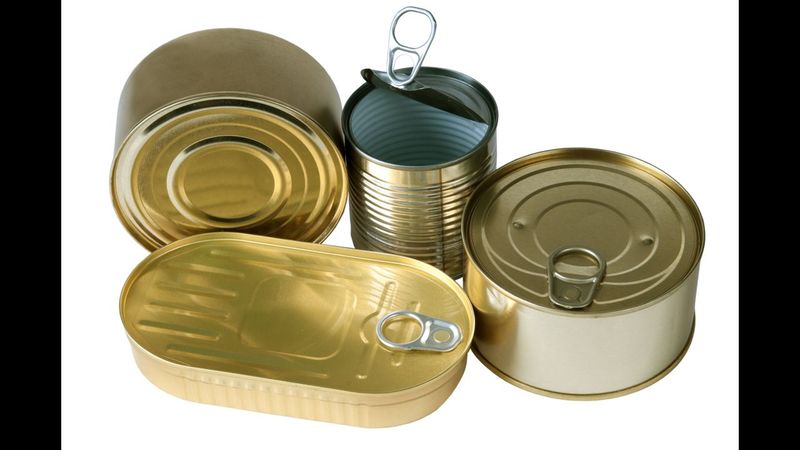
Canned foods, particularly those with plastic linings, can introduce unwanted chemicals into your diet. Many cans are lined with BPA or its alternatives, which may leach into acidic or salty foods like tomatoes or soups. Selecting products in glass jars or BPA-free cans is a more health-conscious choice, offering peace of mind and preserving the taste and quality of your meals.
5. Individually Wrapped Cheese Slices
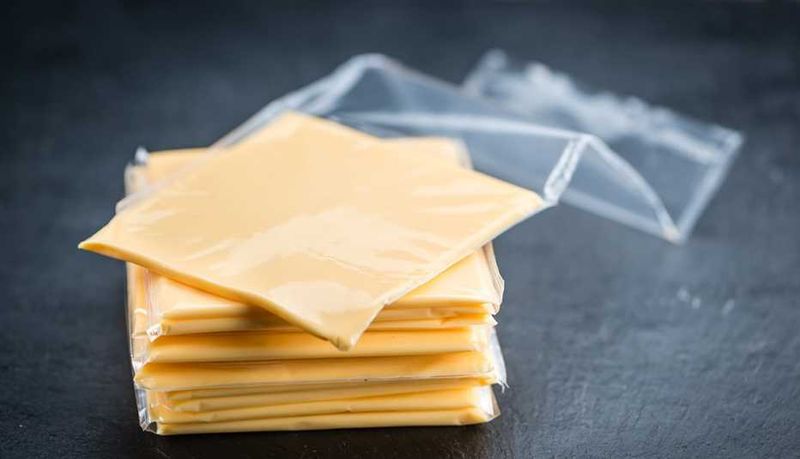
Individually wrapped cheese slices are ultra-processed and cling to the plastic packaging, posing a risk of plastic residue. These slices often contain unnecessary additives as well. Freshly sliced cheese from the deli provides a tastier, healthier alternative with fewer preservatives, and no cling-wrapped plastic touching each slice for prolonged periods. Enjoy better flavor and quality without the plastic concerns.
6. Packaged Instant Noodles (Cup-Style)
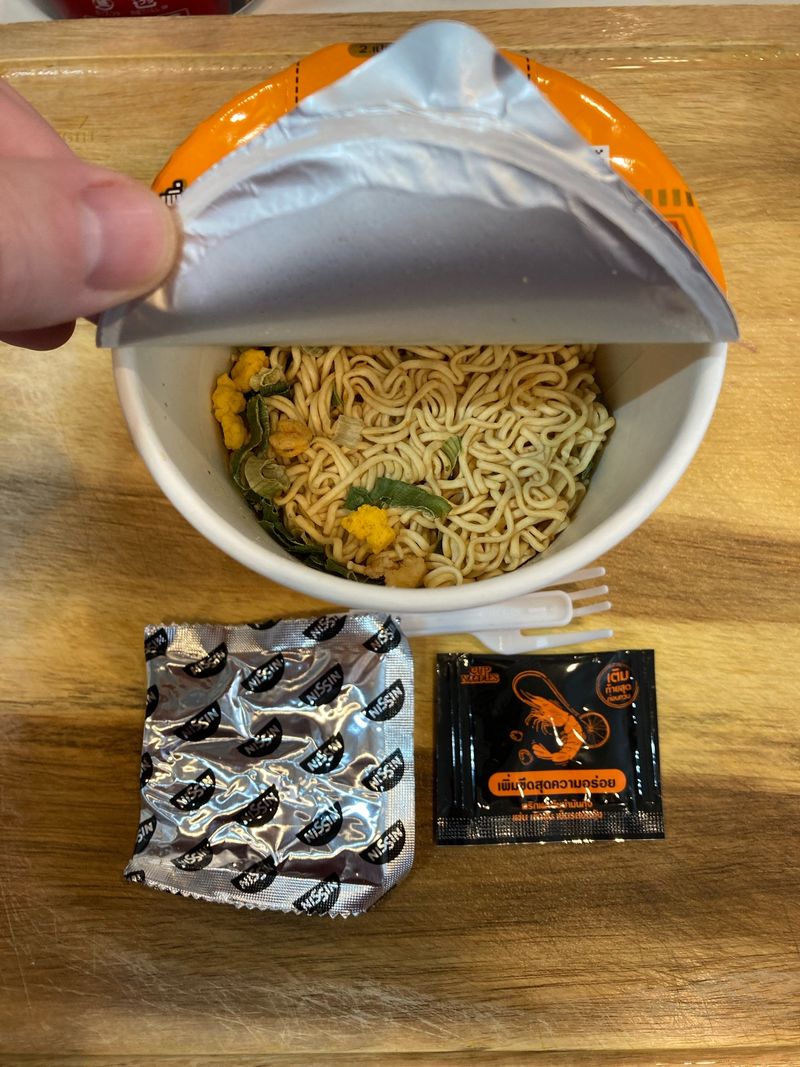
Packaged instant noodles in styrofoam or plastic cups may release microplastics when hot water is added. The flavor packets are also high in sodium and ultra-processed. For a cleaner meal, consider cooking rice noodles or whole-grain pasta at home. This alternative allows you to create a nourishing noodle bowl with clean ingredients and real broth, bypassing the plastic and sodium concerns.
7. Pre-Washed Salad Greens in Plastic Clamshells
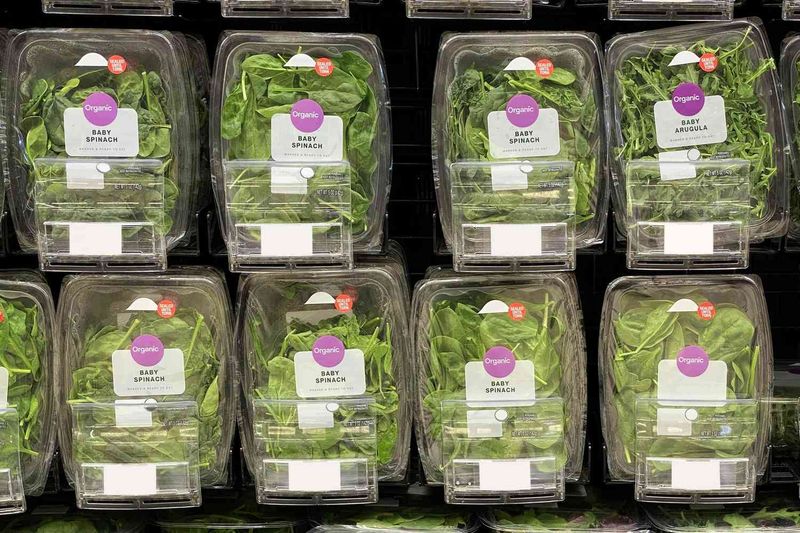
Pre-washed salad greens in plastic clamshells offer convenience but may contain microplastics from industrial rinse water. The packaging is also wasteful. Choose whole heads of lettuce or organic bunch greens instead. These options provide freshness with less processing and packaging waste, and you can rinse them at home to ensure they’re clean and free of unwanted plastic particles.
8. Plastic Coffee Pods (K-Cups)
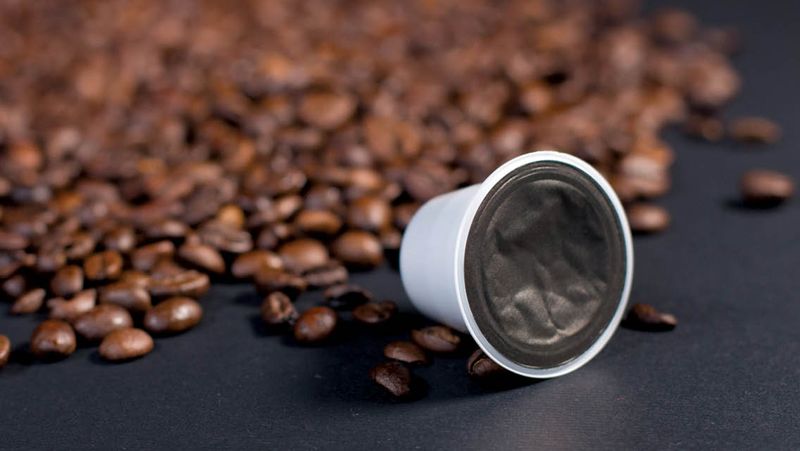
Plastic coffee pods, commonly used in single-serve coffee makers, can leach chemicals when hot water is forced through them. This isn’t the morning boost you want. Consider using a French press or pour-over coffee method instead. These alternatives offer rich, clean coffee without the plastic contact, preserving the flavor and integrity of your brew.
9. Stovetop Popcorn (With Organic Kernels)
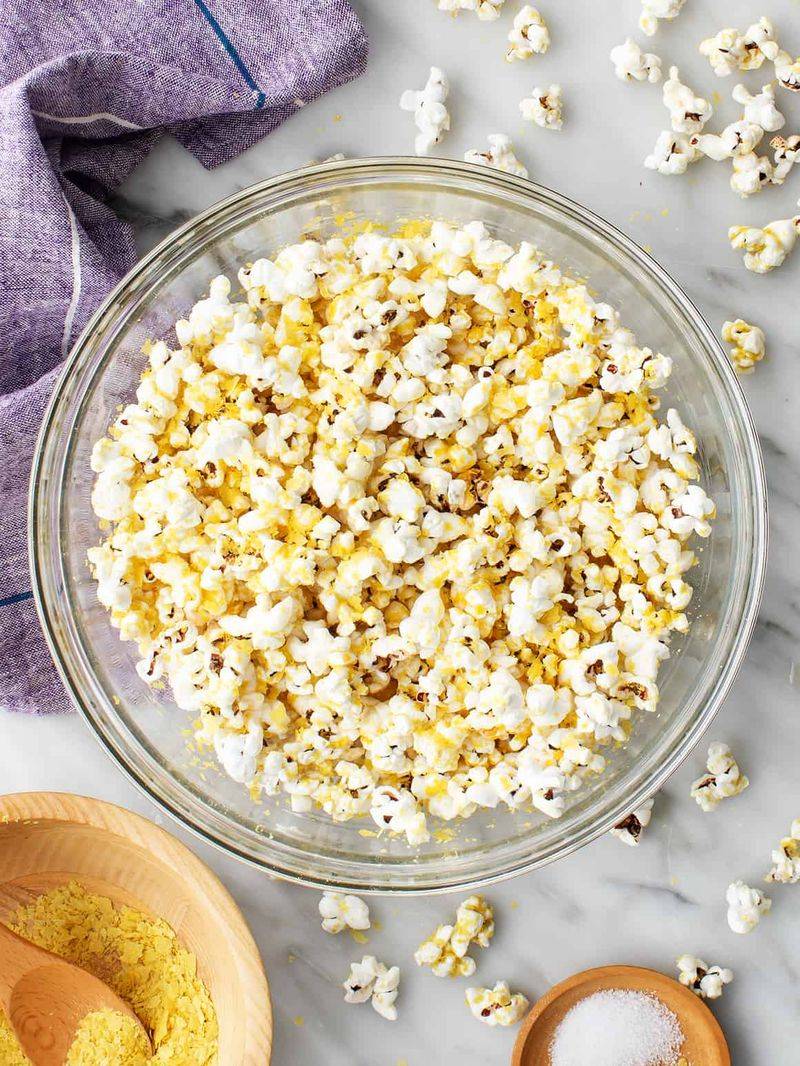
Stovetop popcorn, when made with organic kernels, provides a healthier snack option free from packaging toxins. Popped in a pot with oil, it offers superior taste and full control over ingredients. This method avoids the risks associated with microwave popcorn bags and delivers a wholesome, delicious treat.
10. Filtered Water in a Glass or Stainless Steel Bottle
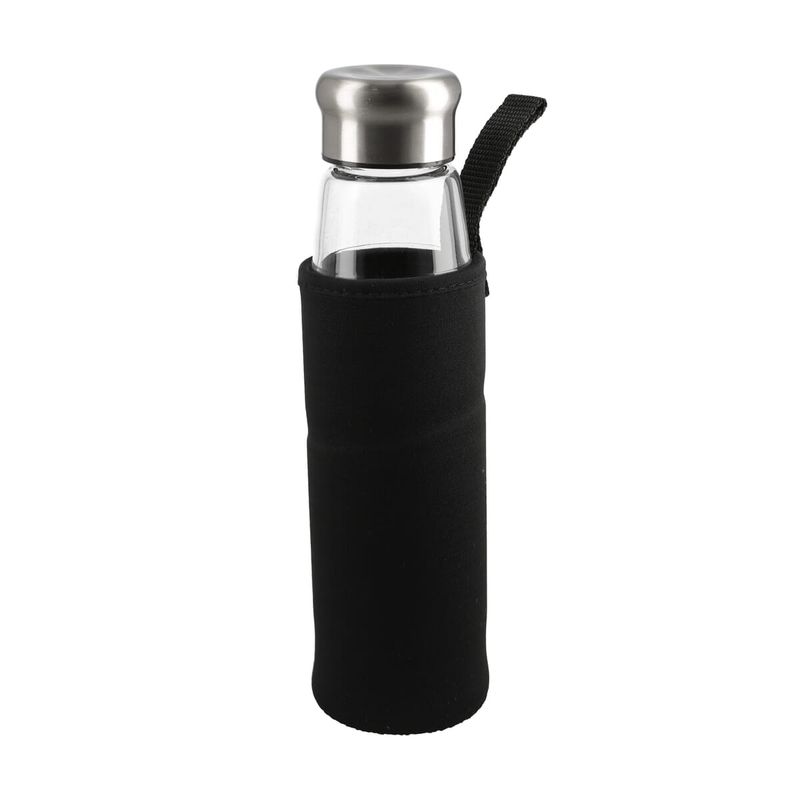
Filtered water, stored in a glass or stainless steel bottle, ensures a safer and more sustainable drinking experience. This choice eliminates the risk of ingesting microplastics, providing a cleaner, purer water option. Ditch the plastic bottles and opt for a healthier hydration solution.
11. Glass or Stainless Steel Food Storage Containers
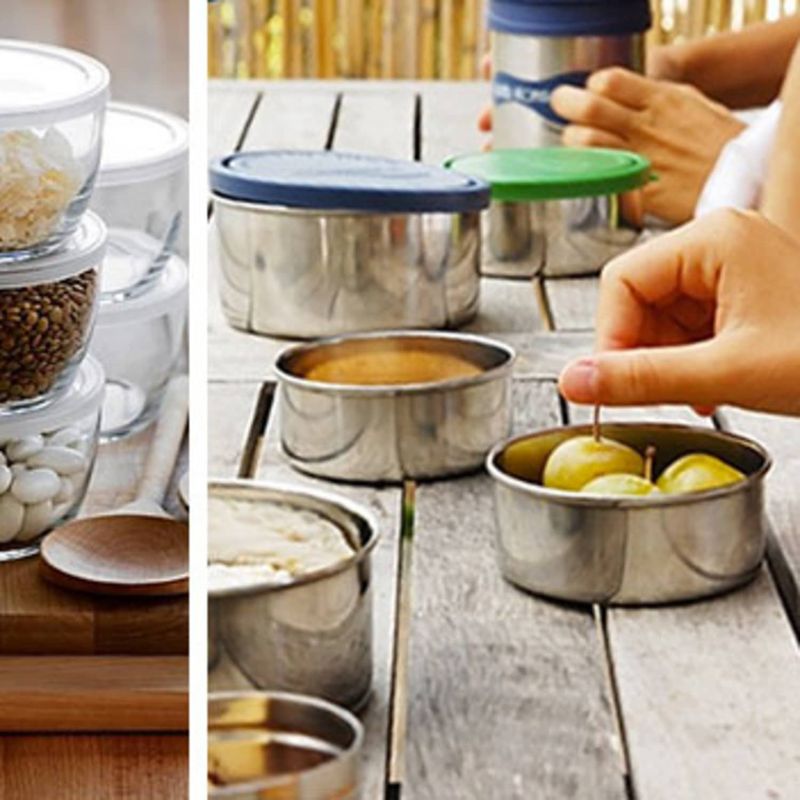
Glass or stainless steel food storage containers are ideal for storing takeout leftovers or home-cooked meals. They allow for safe reheating and eliminate chemical leaching concerns associated with plastic containers. This choice promotes both health and sustainability, ensuring your meals remain free from harmful contaminants.
12. Glass Jar Canned Goods (or BPA-Free Lined Cans)
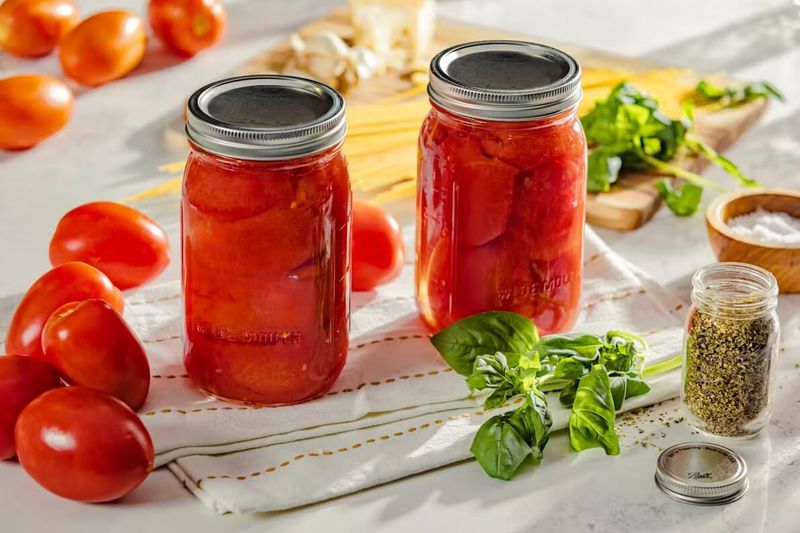
Foods packaged in glass jars or BPA-free lined cans offer a safer alternative to traditionally canned goods. This choice reduces the risk of chemical leaching from linings, maintaining the quality and flavor of your food. Opt for brands known for their commitment to quality, such as Eden or Amy’s, to ensure a healthier pantry.
13. Freshly Sliced Cheese from the Deli
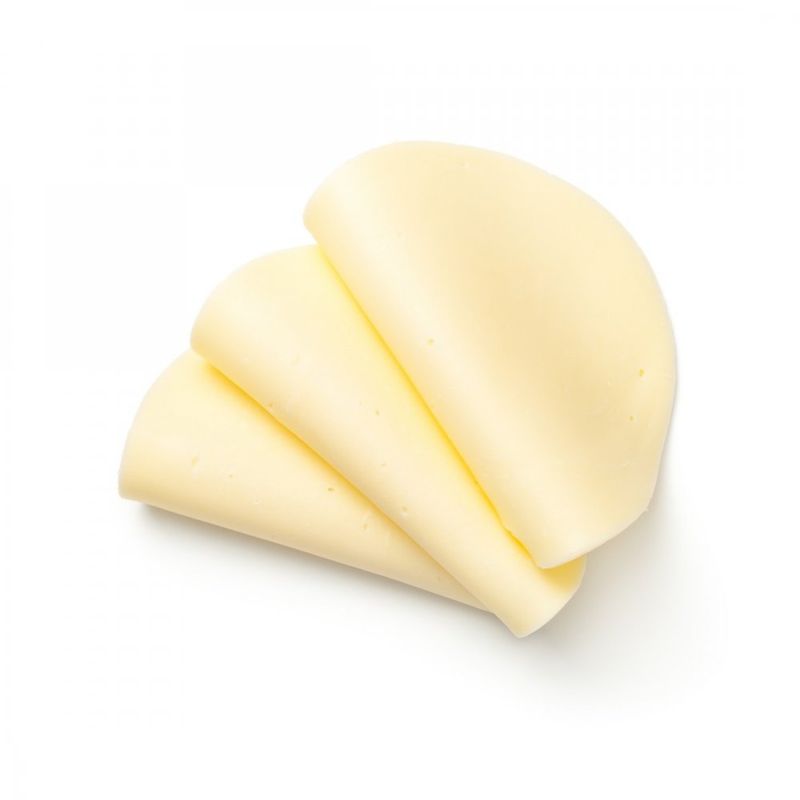
Freshly sliced cheese from the deli offers better flavor and fewer preservatives compared to individually wrapped slices. This option avoids prolonged plastic contact, enhancing both the taste and quality of your cheese. Enjoy the richness of fresh cheese without the added plastic concerns.
14. Rice Noodles or Whole-Grain Pasta Cooked at Home
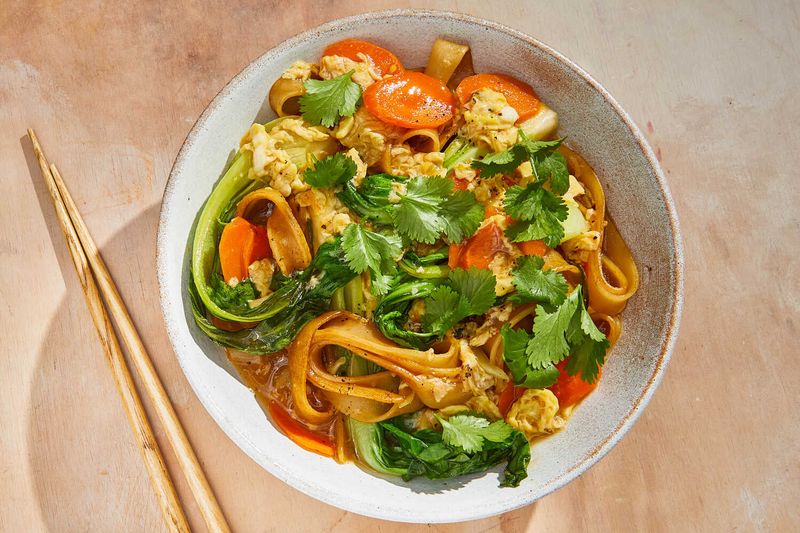
Cooking rice noodles or whole-grain pasta at home allows you to craft a delightful noodle dish with fresh, clean ingredients. This method avoids the pitfalls of packaged instant noodles, such as plastic contamination and excessive sodium. Enjoy a nourishing meal with real broth and authentic flavors, free from unwanted additives.
15. Whole Heads of Lettuce or Organic Bunch Greens
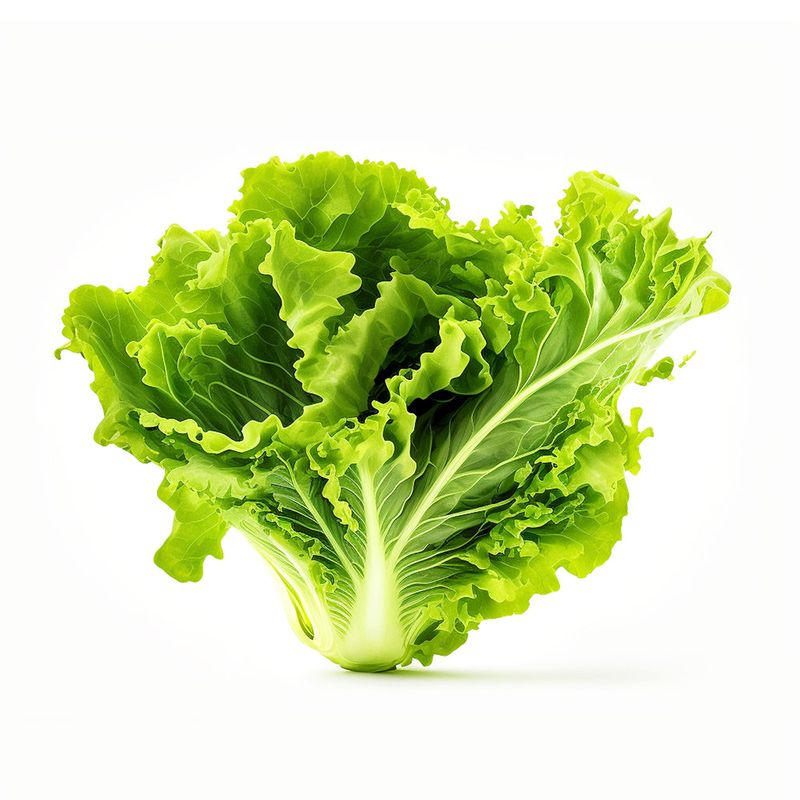
Choosing whole heads of lettuce or organic bunch greens ensures a fresher, less processed salad component. This option minimizes packaging waste and avoids the microplastic contamination found in pre-washed salad greens. Enjoy a crisp, clean salad experience with greens you can rinse and prepare yourself.
16. French Press or Pour-Over Coffee
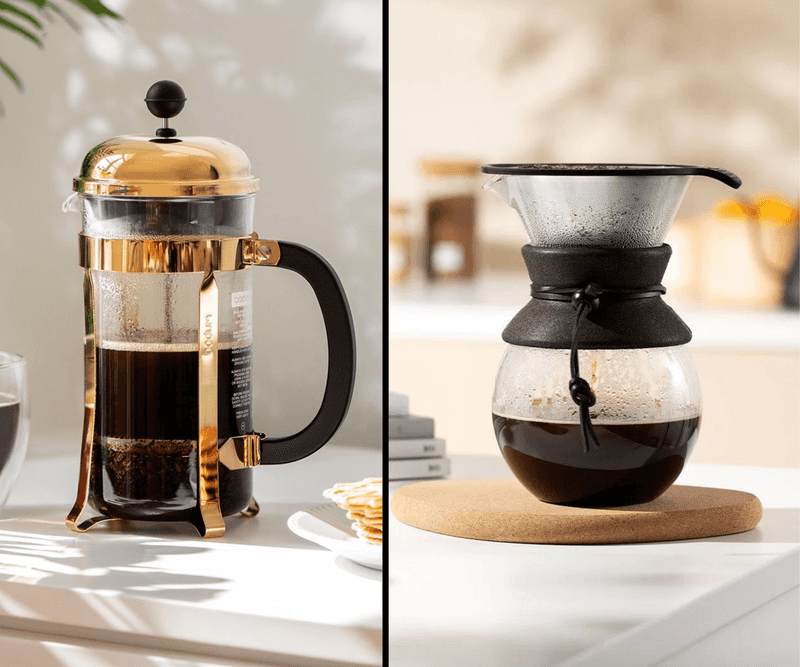
French press or pour-over coffee methods offer a rich and clean brewing experience, free from plastic pod contamination. These traditional methods preserve the coffee’s natural flavors and provide a satisfying, flavorful cup. Switch to these alternatives for a superior coffee experience without the plastic concerns.
17. Beeswax Wraps or Reusable Food Wraps
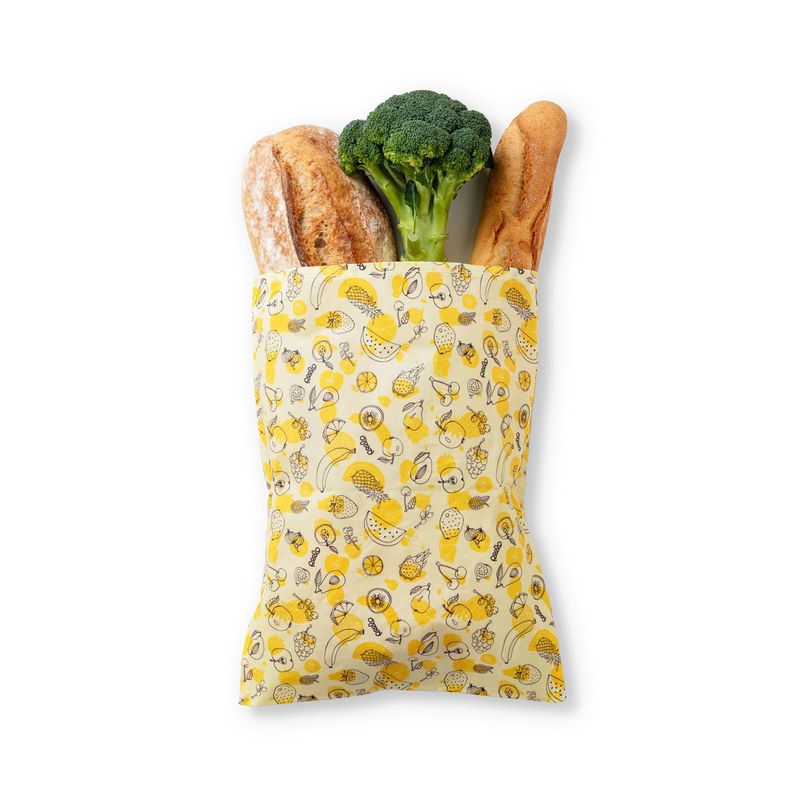
Beeswax wraps or reusable food wraps are sustainable alternatives to plastic wrap. They help keep food fresh while reducing plastic waste in your kitchen. These eco-friendly wraps are versatile and maintain the quality of your meals, ensuring a cleaner and greener food storage solution.
